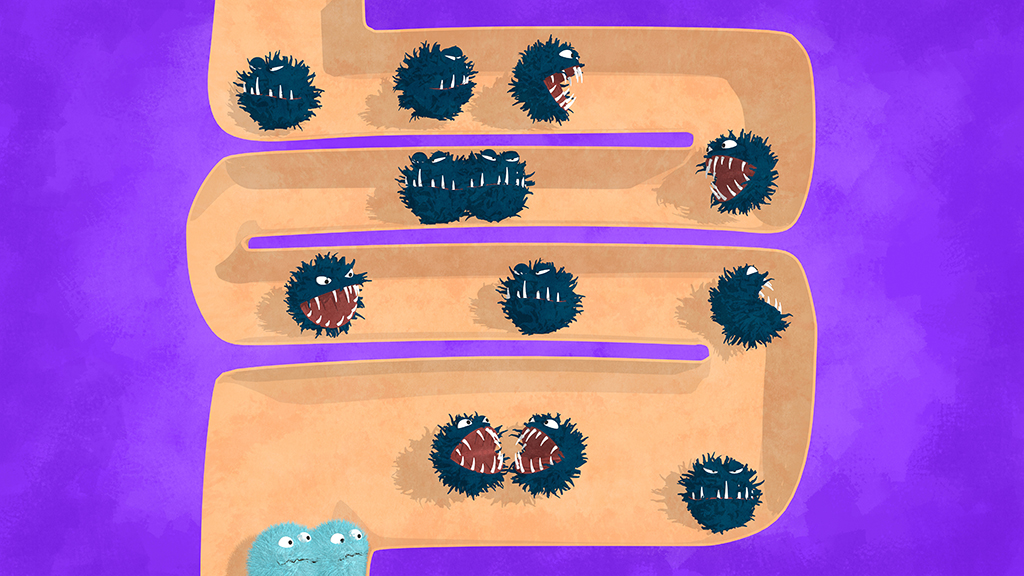Abstract
In this interrupted case study, students explore the contributions of our intestinal microbiota to our health through the story of a first-year college student suffering from gastric distress. Students investigate the normal activities of our intestinal microbiomes and how disease can be caused by disruptions, either through the introduction of a pathogenic species of bacteria or through dysbiosis (the change in the balance of microbial resident species). The case highlights the steps of the scientific method in the context of a differential diagnosis (where symptoms of disease are observations, and causes of those symptoms are competing hypotheses that can be interrogated through experiments). A jigsaw activity is included in which groups of students develop expertise in one of three assigned topics related to the case, and then share what they have learned in new groups of students with different expertise. The case is designed for high school biology students, but can easily be adapted for undergraduate classes, particularly those in health sciences fields, with an additional focus on intestinal disease and diagnoses.



